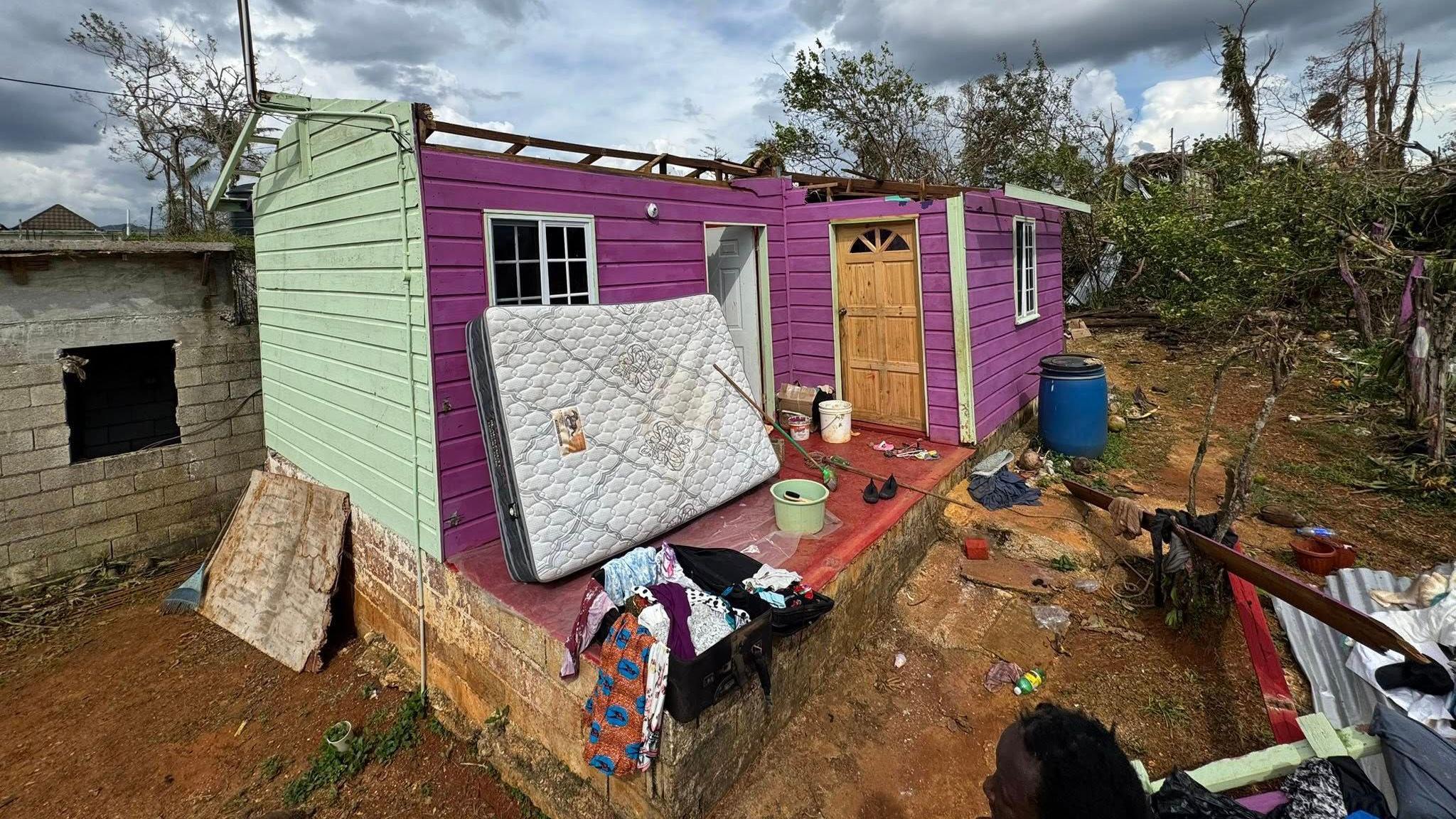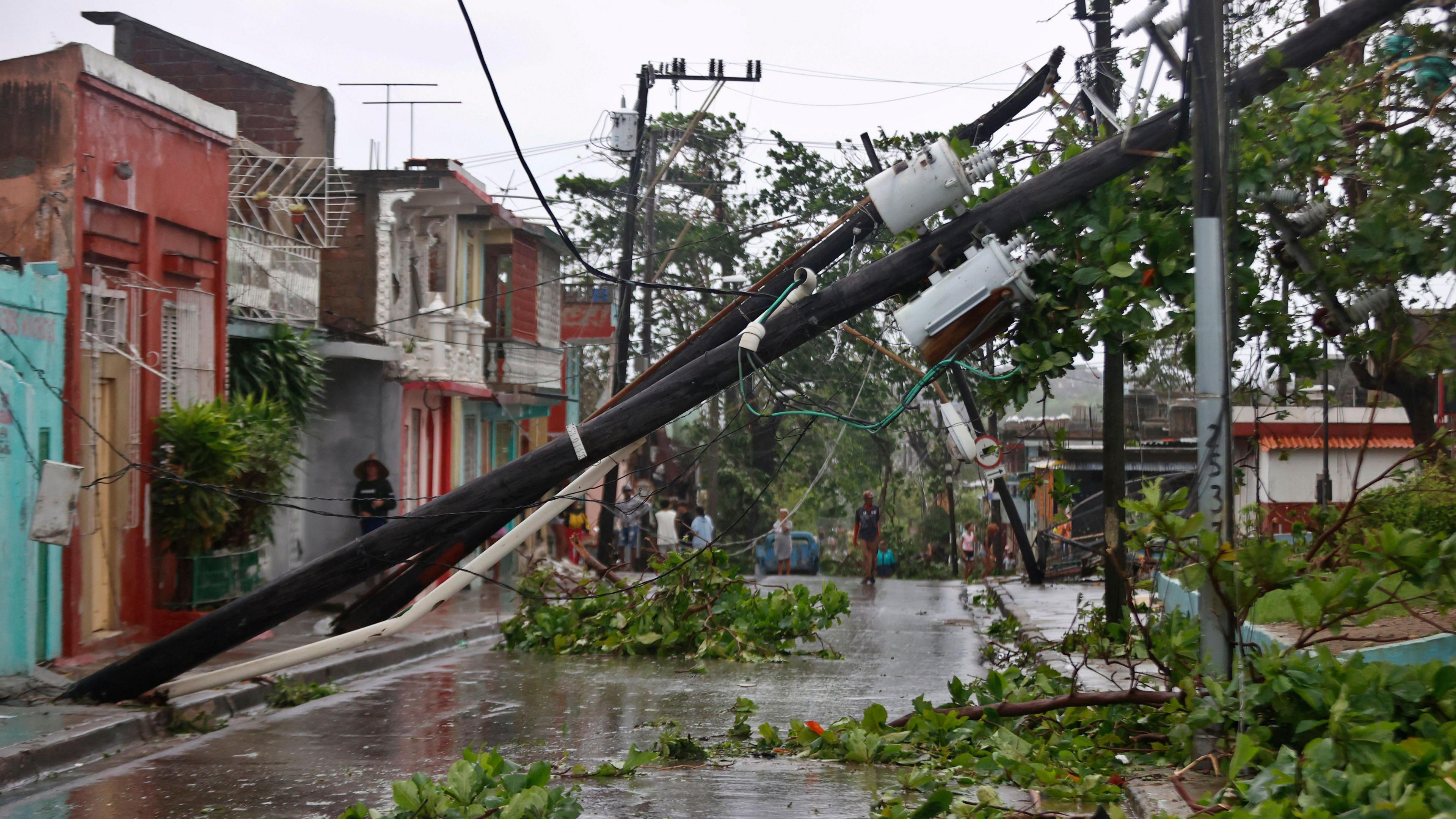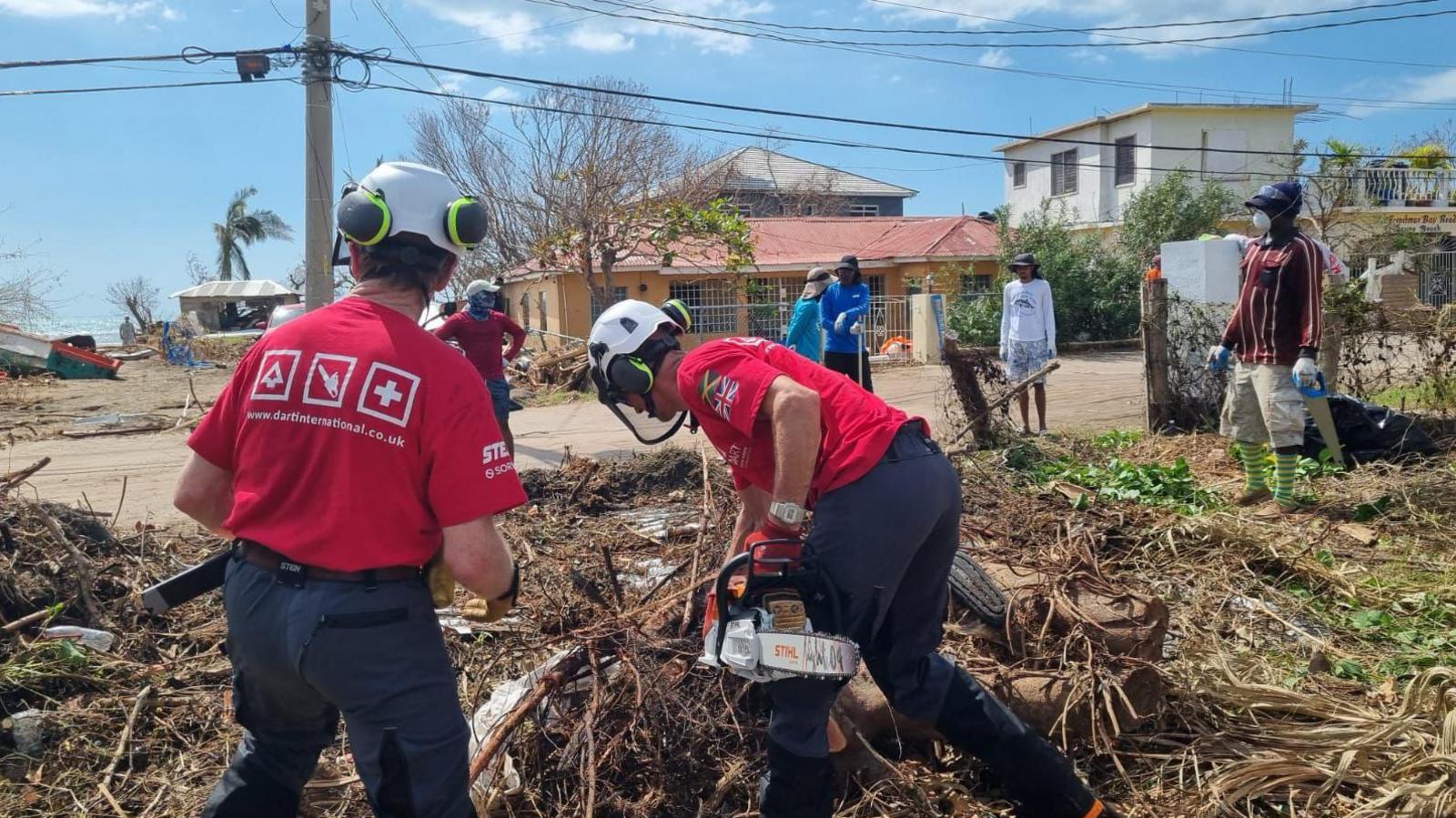Man in Jamaica stays to help with hurricane damage

David Hale has been raising money through an online fundraiser
- Published
A man who has been working in Jamaica as an engineering manager has decided to remain after Hurricane Melissa to help people rebuild.
David Hale, from Saltash, Cornwall, has been working with local residents to clear debris, repair homes, and deliver food and essential supplies and raise money through an online fundraiser.
Mr Hale said the area he was living in had less damage than what he expected, but other areas were in need of support.
He said: "Trees were just down everywhere, power lines down everywhere, houses just flattened... like nothing you could even imagine."
He said: "A couple of the guys in work were in the areas that had been worst affected and you just weren't able to communicate with them.
"We then made the decision that we needed to go in support and help these people because, as much as the government is here is doing everything they can, there's just not enough people here to help through our work."
He added people were desperate for both food and water, but people also needed help because they had no roof.
He said they put tarpaulins up to keep them sheltered.
He said: "The plan is to go back up and do some more work and again expand the aid relief within the area because people are walking from other towns to come and see you, to come and beg you to help them."
'Level of destruction'
Leanne Narbett, from Cornwall, was in Jamaica with her husband and four-year-old daughter.
Her family was able to return to the UK on the second avaiable flight back.
She said the hurricane was like nothing they could have imagined.
She said: "We were obviously safely held up in our room for about 36 hours in the end, but the noise was something that I couldn't even put into words.
"It was like having a jumbo jet outside your house on full pelt constantly.
"We didn't really see the level of destruction until we got on the coach and left our hotels to drive to the airport - that's when we could see the devastation in the town itself."
Ms Narbett added: "The airport was pretty much closed. They only had use of two gates because everything else was too damaged... but we were so grateful to the crew."
Follow BBC Cornwall on X, external, Facebook, external and Instagram, external. Send your story ideas to spotlight@bbc.co.uk, external.
Related topics
- Published30 October

- Published6 November
